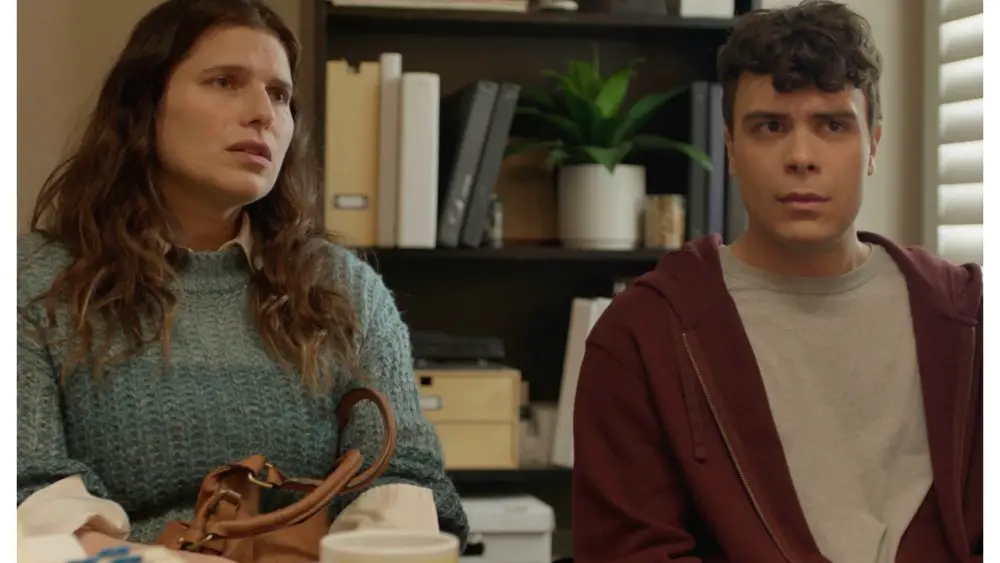Director Miles Levine, who was diagnosed with epilepsy, refused to hide it. Instead, he took an “emotional leap” with his next feature, “Under the Lights.”
“The best movies come from diaries that no one wants to read,” he says.
“If you have a story that comes out of you without any risk, it’s less likely to be honest. But if it’s something you’d rather keep hidden under your bed…then share it with others.” These are things I’ve never told anyone, but I bet they’d understand. So far, the answer is a resounding yes. ”
Levin’s drama (currently in post-production), which won an award at the American Film Festival in Poland and four awards from industry sidebar US in Progress, focuses on Sam, who doesn’t want to be defined by his suffering. . He tries to experience normal teenage life and even goes to prom, but he is frightened by his overprotective mother.
“There are so many moments in this film that reflect the emotions I felt and the places I’ve been. I think it’s because of the people who are not in a position to share their stories. They are ostracized, they are denied jobs. I’m not – no one is going to crucify me. And if I tell my story, it might be safer for other merchants to come forward. I can’t.”
Under the Lights, produced by Vanishing Angle and scheduled to premiere in 2025, will see Levin return to the story he began exploring in a 2020 short, also starring Pierce Joza.
“He showed empathy for our situation and had a huge impact on the epilepsy community. Torchbearers are truly rare. The core problems we face come from outside our world. It’s about not having an advocate. I’m afraid they’ll never really understand. Pierce is a really understanding person.”
Currently, Joza is joined by Lake Bell, Nick Offerman, Mark Duplass, Randall Park, Tanjin Crawford, and Marin Hinkle.
“We were very lucky with the cast of this film. People were passionate about the story and some of the actors had personal connections. [the subject of] It’s epilepsy,” explains Natalie Metzger, Vanishing Angle’s vice president of production and development, opening up about the relationship between Sam and his mother, played by Belle.
“There are some really raw scenes between them in this movie. It’s raw and honest.”
Levin added: “I kept asking myself, ‘Can I actually put this down on paper?’ This is about someone’s very specific experience of overcoming an obstacle and how it impacts an entire family.” Part of growing up is realizing that your parents are human beings, too. My own diagnosis changed their lives forever. I was able to understand my mother better.”
Even with prom on the horizon, Under the Lights isn’t just another teen movie. But that doesn’t mean there’s a lack of humor, Metzger asserts.
“Miles always had an element of comedy throughout the script. It was important to him to make a movie that was funny and fun, rather than a somber PSA about this disease,” she says, adding that Levine It is stated as follows. movie. ‘I’m not talking about colorful streamers or make-out sessions while the parents are away. It’s about not wanting to feel left out,” he says.
“There are 100 ways to make a movie like this terrible. One of them would be to say, ‘Oh, it’s about disability, so it must be tragic.’ We must feel very sorry for this child. ” We’ve all seen that movie and it was terrible. ”
Instead, “Under the Lights” embraces the idea that “everyone is complicated.”
“We can all make fatal mistakes in the way we respond to each other. In some cases, your adversary is someone who has good intentions but is very bad at handling the situation. It’s more reflective of the world we live in. It’s not always full of bad guys and good guys. Sometimes it’s just full of guys,” Levin laughs.
“This is a story about people with good intentions who screw up and somehow have to get back together and listen to each other.” Nick Offerman says as the kids improvise. There’s this line: “Jane, she’s trying to help you.” Let her help you. ‘It symbolizes the whole story. ”
He hopes the film, like the previous short, will “revolutionize things for these invisible people.”
“There is no movie I like more than this one,” he admits.
“I paid a price to the medical gods. Like Sam, I didn’t get to experience some of the things other kids went through and missed out on a rite of passage. I never It wasn’t stupid. This movie made it all worth it. If you asked me if I could go back and heal, I would actually say no.”
